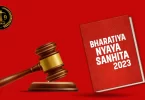SALARIES
So far as the salary is concerned, you will laugh, naturally, but the Congress believes that it is an impossible thing for us who, ill terms of wealth, are a nation of dwarfs, to vie with the British Government, which represent today giants in wealth, India, whose average income is 3 d. per day, can ill afford to pay the high salaries that are commanded here. I feel that it is a thing which we will have to unlearn if we are going to have voluntary rule in India. It is all very well so long as the British bayonet is there to squeeze out of these poor people taxes to pay these salaries of Rs.10,000 a month, Rs. 5,000 a ‘month, and Rs. 20,000’ a month. I do not consider that my country has sunk so low that it will not be able to produce sufficient men who will live somewhat in correspondence with the lives of the millions and still serve India nobly, truly and well. I do not believe for one moment that legal talent has to be bought if it is to remain honest.
I recall the names of Motilal Nehru, C. R. Das, Manomohan Ghose, Badrudin Tyebji and -a host of others, who gave their legal talent absolutely free of charge and served their country faithfully and well. The taunt may be flung in my face that they did so because they were able to charge princely fees in their own professional work. I reject that argument for the simple reason that I have known every one of them with the exception of Manomohan Ghose. It was not that they had plenty of money and therefore gave freely of their talent when India required it. I have seen them living the life of poor people and in perfect contentment. Whatever may be the position at the present moment, I can point out to you several lawyers of distinction who, if they had not come to the national cause, would today be occupying seats of the High Court benches in all parts of India. I have, therefore, absolute confidence that when we come to frame our own rules and so on we will do so in a patriotic spirit and taking account of the miserable state that the millions of India occupy.
One word more and I have finished. Seeing that the Congress holds the view that this Federal Court or Supreme Court-whichever you call it-will occupy the position of the highest tribunal beyond which no man who is an inhabitant of India can go, its jurisdiction, in my opinion, will be limitless. It will have jurisdiction, so far as Federal matters are concerned, to the extent that the Princes are also willing, but I cannot possibly imagine that we- shall have two supreme Courts, one in order to deal with merely Federal law and another to deal with all the other matters that are not covered by the Federal administration or the Federal Government.
As things go, the Federal Government may concern itself with the minimum of subjects; and therefore matters of the highest moment will be extra- Federal. Who is to adjudicate upon these extra-Federal matters if not this very Supreme Court? Therefore this Supreme Court Federal Court will exercise double jurisdiction, if necessary, treble jurisdiction. The greater the power that we give to this Federal Court, I think the greater the confidence we shall be able to inspire in the world and also in the nation itself,
I am sorry to have taken up these precious minutes of the time of the Conference, but I felt that, in spite of my great reluctance to speak to you on this question of a Federal Court, I must give you the views that many of us in the Congress have been holding for a long time and which, we should, if we could, spread throughout the length and breadth of India. I know the terrible handicap under which I am labouring. All the most distinguished lawyers are arrayed against me; the Princes also are probably arrayed against me so far as the salaries and jurisdiction of this Court are concerned. But I would be guilty of neglect of duty to the Congress and to you if I did not give you the views that the Congress and I hold so strongly on the matter of the Federal Court.
Young India, 5-11-1931, pp. 337-38





